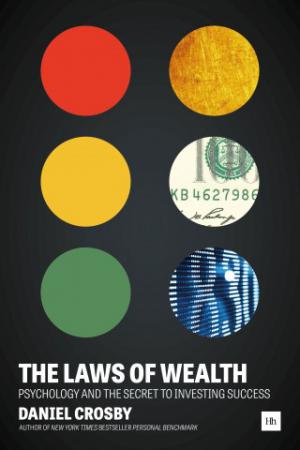
Michael welcomes Daniel Crosby, author of “The Laws of Wealth: Psychology and the Secret to Investing Success.” His background is in behavioral psychology and he sees the markets as a great backdrop to view human behavior in a real world setting.
Michael and Daniel start breaking apart the efficient market theory into two concepts: 1. You can’t beat the market, and 2. The price that you see is always right. They discuss debate in the academic world between the efficient market camp and the behavioral finance camp. Daniel says that the 2008 crash shows where the efficient market theory starts to break down. He moves into value and momentum trading.
Daniel brings in research proving that rules based approaches is 94% more successful than expert personal discretion. “Let your profits run and cut your losers short” is perhaps the biggest rule in trend following which takes great psychological discipline. Daniel says that it is an easy concept to grasp, but so hard to follow. Any investment discipline rooted in human psychology has a much better chance of working and sticking around than other strategies that don’t take human nature into account.
To make the risky choices Daniel says you need a mentor. Humans don’t do well with volatility and uncertainty. We live in the present and not in the future so a lot of people need coaching to look beyond the day to day. The hallmark of a good investor realizes that the rules do apply to them and they own the fact that they are no more gifted or special than the next person. Most investors tend to leave about 50% of their profits on the table due to bad emotional decisions.
Daniel says that everyone talks about the idea of “trouble is opportunity” but they don’t really live by it. People need to take a closer look at what “opportunity” really is. They need a rule, system or automation in place that makes them do the thing they don’t want to do. Michael and Daniel finish up the podcast talking about “benchmarks” and how they hinder investors performance and aid in making bad decisions. People who have personal benchmarks rather than index benchmarks have shown to trade more successfully.